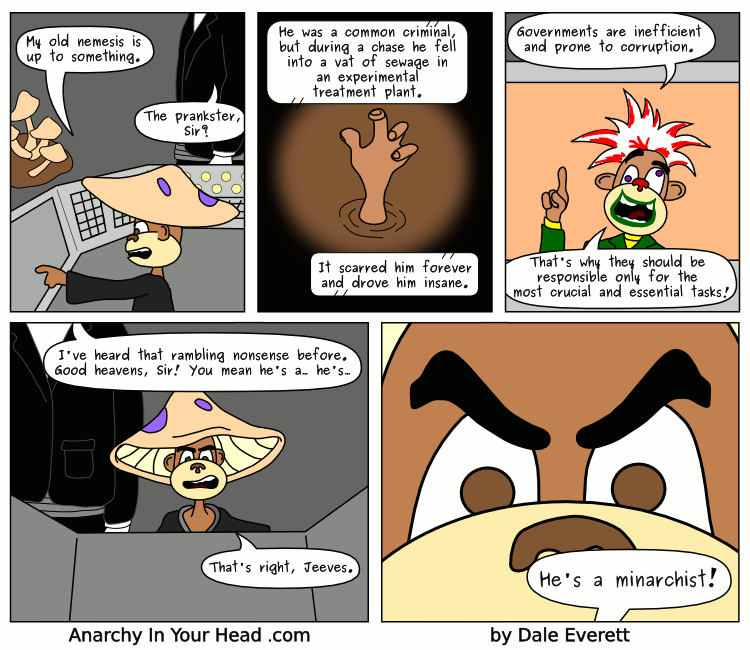Statist claim: Governments can stay limited.
Fallacy:
Sure, government excesses in taxation and regulation are bad, but I believe in limited government. If only we get the right people into power, everything will be great!
Response:
What government has ever stayed limited?
Statism is the utopian ideal that just the right amount of violence used by just the right people in just the right way can perfect society. (Keith Hamburger) As Rothbard tells us,
The libertarian is also eminently realistic because he alone understands fully the nature of the State and its thrust for power. In contrast, it is the seemingly far more realistic conservative believer in “limited government” who is the truly impractical utopian. This conservative keeps repeating the litany that the central government should be severely limited by a constitution. Yet, at the same time that he rails against the corruption of the original Constitution and the widening of federal power since 1789, the conservative fails to draw the proper lesson from that degeneration. The idea of a strictly limited constitutional State was a noble experiment that failed, even under the most favorable and propitious circumstances. If it failed then, why should a similar experiment fare any better now? No, it is the conservative laissez-fairist, the man who puts all the guns and all the decision-making power into the hands of the central government and then says, “Limit yourself”; it is he who is truly the impractical utopian. - Murray Rothbard, For a New Liberty
And of course, Lysander Spooner takes to task a particular example of supposed "limited government" - the US constitution, and concludes:
But whether the Constitution really be one thing, or another, this much is certain — that it has either authorized such a government as we have had, or has been powerless to prevent it. In either case, it is unfit to exist. - Lysander Spooner, No Treason
An important question for minarchists is "Limited by what principle?" That, at least, is a start. Some minarchists have a vague idea of a list of things they want the state to do, and no idea why they "must" be done by the state. Others claim the state should do "Whatever individuals cannot do themselves", which, of course, is nothing; and they can sometimes be persuaded into voluntaryism when that is explained to them. So it is most important to glean from them a principle which will define what their "minimal" or "limited" state must do, and why. That's something reasonable people can work with, while vague ideas and notions are not. (DBR)
Many seem eager to claim the label of libertarian. Many claim to want a live and let live society. But then there is that one bit of government intrusion that they’re not willing to give up.
- I’m a libertarian, but we need government to control our borders!
- I’m a libertarian, but we need government to protect us from foreign enemies!
- I’m a libertarian, but government needs to provide a safety net!
- I’m a libertarian, but porn!, drugs!, commies!, ...
Everyone just has their little thing they want from government. To keep their little thing, they compromise on all the rest and we get an awful lot of buts and a really bloated and intrusive government. What’s your libertarian "but" that’s contributing to the growth of the cancer known as authoritarian government? — Dale Everett, Anarchy in your Head
Related: Libertopia, Roy Child's Open Letter to Ayn Rand.
